
Findings from a phase 1 study indicated that Lucid-21-302 was generally well tolerated and exhibited dose-proportional exposure, warranting additional study in a phase 2 trial for multiple sclerosis.

Marco Meglio, Assistant Managing Editor for NeurologyLive, has been with the team since October 2019. Follow him on Twitter @marcomeglio1 or email him at [email protected]

Findings from a phase 1 study indicated that Lucid-21-302 was generally well tolerated and exhibited dose-proportional exposure, warranting additional study in a phase 2 trial for multiple sclerosis.

New phase 3 FREXCITE trial tests frexalimab CD40L inhibitor in nrSPMS, comparing on-body subcutaneous vs IV dosing

Real-world phase 4 data show cladribine keeps relapse rates low and safety steady in relapsing MS patients, including those 65+.

FASTEST finds rFVIIa curbs ICH bleeding fast but adds clot risk; ultra-early and spot-sign patients show promise as Part 2 continues.

Newly reported data showed that oral valiltramiprosate lowers p-tau217 and links to cognitive and brain-volume benefits in early Alzheimer disease.

The director of the Center for Clinical Ethics at Yale New Haven Health discussed the rationale behind the newly published AAN guidelines on functional seizures, outlining diagnostic priorities, evidence-based treatment recommendations, and key gaps.

ALS expert Merit Cudkowicz, MD, MSc, provided thoughts for National Women Physicians Day, reflecting on resilience in ALS research, the power of mentorship, and how leadership and advocacy can shape a meaningful career in neurology.

Claire Henchcliffe, MD, DPhil, an international leader in Parkinson disease research, reflects on mentorship, leadership development, and the systemic changes needed to support long-term success for women in neurology and clinical neuroscience.

Janis Miyasaki, MD, MEd, FRCPC, FAAN, a pioneer in neuropalliative care, provided clinical thoughts and perspectives on National Women Physicians Day and the ways to promote women leadership within the neurology field.

Test your neurology knowledge with NeurologyLive®'s weekly quiz series, featuring questions on a variety of clinical and historical neurology topics. This week's topic is on diagnosing parasomnias!

Test your neurology knowledge with NeurologyLive®'s weekly quiz series, featuring questions on a variety of clinical and historical neurology topics. This week's topic is on the ACTRIMS and its history!

Neurocrine Biosciences launches a Phase 2 trial for NBI-1065890, targeting tardive dyskinesia with promising new treatment options.
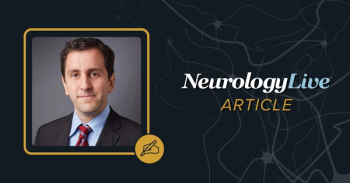
The AAN's new guideline enhances diagnosis and management of functional seizures, emphasizing psychological interventions and addressing care gaps for better patient outcomes.

New findings from the EMBARK study highlight Elevidys' significant long-term benefits in slowing Duchenne muscular dystrophy progression in young patients.

A recent study linked maternal diabetes to a doubled risk of multiple sclerosis in offspring, highlighting prenatal factors in MS susceptibility.

Test your neurology knowledge with NeurologyLive®'s weekly quiz series, featuring questions on a variety of clinical and historical neurology topics. This week's topic is on the ALS Treatment pathways!

Benitec Biopharma reveals promising results for BB-301, a gene therapy showing significant improvements in swallowing function for OPMD patients.
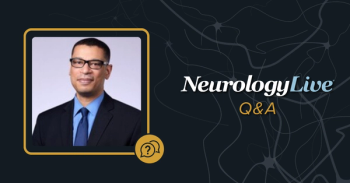
Jerel Banks, MD, PhD, chief executive officer of Benitec Biopharma, reviews early phase 1b/2a clinical signals, mechanism, and next steps for BB-301 in oculopharyngeal muscular dystrophy.

Mind Moments®, a podcast from NeurologyLive®, brings you an exclusive interview with Benjamin Tolchin, MD, MS, FAAN. [LISTEN TIME: 23 minutes]

The chief medical officer at the Parkinson’s Foundation detailed how mood and behavioral symptoms shape quality of life in Parkinson disease and how clinicians can better identify and manage them.

Early initiation of opicapone significantly reduces OFF time and enhances ON time in patients with recently diagnosed Parkinson's disease, improving overall treatment outcomes.

A recent phase 2b study reveals mesdopetam's potential in reducing dyskinesia severity in Parkinson disease, despite no significant ON time improvement.
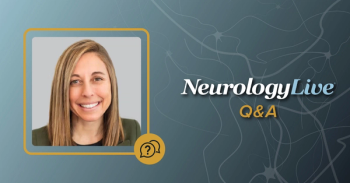
Stephanie Fradette, PharmD, head of neuromuscular development at Biogen, gave immediate reaction to the EC approval of high-dose nusinersen and its implications for evolving SMA treatment strategies.

Test your neurology knowledge with NeurologyLive®'s weekly quiz series, featuring questions on a variety of clinical and historical neurology topics. This week's topic is on the International Stroke Conference (ISC)!

Coya Therapeutics reveals promising results for COYA 302, a potential treatment for frontotemporal dementia, showing cognitive stability and Treg enhancement.
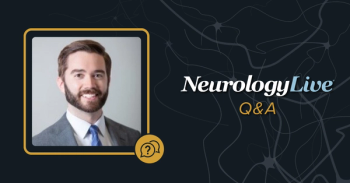
Paul Melmeyer, MPP, executive vice president, public policy and advocacy, Muscular Dystrophy Association, explains how adding Duchenne muscular dystrophy to the Recommended Unified Screening Panel reshapes early diagnosis, treatment timing, and family counseling.

Published phase 3 data in JAMA Neurology highlighted tofersen's potential to slow ALS progression and improve survival, marking a breakthrough in SOD1-ALS treatment.

The FDA is expected to have a decision on efgartigimod as potentially the first approved therapy for seronegative myasthenia gravis by May 10, 2026.

Those from the clinical community may expect to hear data from the registrational trial assessing zorevunersen in Dravet syndrome by mid-2027.

A phase 2 trial shows NNZ-2591 improves symptoms in children with Phelan-McDermid syndrome, paving the way for a phase 3 study.
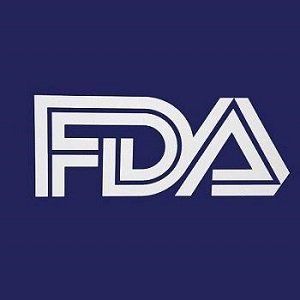
Published: November 24th 2025 | Updated: December 5th 2025

Published: August 29th 2025 | Updated: September 2nd 2025

Published: March 4th 2025 | Updated: March 19th 2025

Published: January 30th 2025 | Updated: February 21st 2025

Published: February 4th 2025 | Updated: February 6th 2025

Published: January 21st 2025 | Updated: January 24th 2025